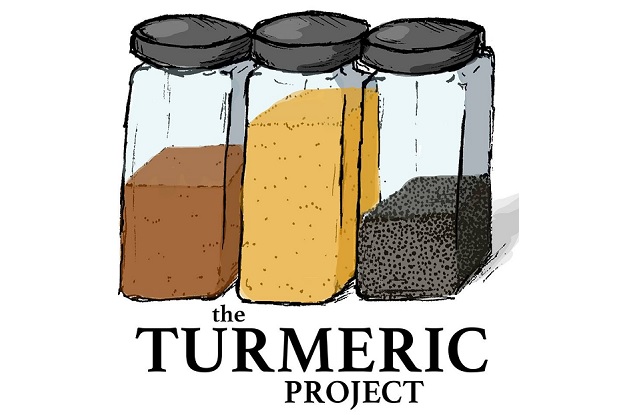
To be a queer desi diasporic person is to be lonely.
Lonely in rooms full of people with noses just like yours joking about which cousin will get married next. In the last moments of a house party full of white queers, as the conversation wanders to defining queer moments and you dream of brown skin. And alone, hunched over a notebook in the middle of the night, wondering if there are pictures or words to express how far away you are. To travel across a sea of silence toward a world where you feel full.
In December 2016, we — my cousin Urvashi Pathania and I — began working on The Turmeric Project out of desperation, to bridge that sea. A month earlier on the day after Donald Trump was elected, out of sheer exhaustion, I told my mother I was queer. I was still limping along the path to accepting my new and painful identity.
“I was still limping along the path to accepting my new and painful identity.”
And Urvashi was five months out from quitting a corporate job to apply to film school and wondered every day how to find her place if corporate America had nothing for her. In this moment, Urvashi flew out from New York City to live with me in the Bay Area for three weeks and begin asking, through film, the questions most natural to us.
In the ritual of upper class desi diaspora, my parents were in India for the month. Urvashi, my brother and I would wake up to an empty house in the Silicon Valley and spend the days calling organizers and artists to find people willing to share themselves.
Some days, we would load up my car with equipment and drive together to Berkeley or San Francisco, watching the sun flashing cold off the Pacific Ocean and trying to summon language to speak to each other outside of the confines of family dinners. It came slowly, in small bursts of eloquence, as we realized together that we were creating the art and vocabulary we most needed from the world as young and confused people.
“We were creating the art and vocabulary we most needed from the world as young and confused people.”
In the evenings, we’d load footage of interviews, performances, art shows, and organizing spaces onto my parents’ television and watch, sitting together on the Kashmiri carpet. We’d repeat phrases to ourselves that are still burned into our memories.
“Identities are formed through violence.”
“This is the only way I know how to access introspection.”
“I want healing.”
When Urvashi went back to New York City, she would send me selfies of hours hunched over editing software, teaching herself new programs and bringing our experiences to life for other folks.
For us at the Turmeric Project, creating art, creating a shared language, creating community, are the same thing, and all of them heal our souls the way that turmeric heals our bodies. The Turmeric Project grounded me in the variety and creativity of queer South Asian culture and turned my biological family into chosen family.
We hope that this art, language, and community are a gift to other queer South Asian Americans, as comforting as the turmeric that our grandmother used to put in our kichdi.
* * *
The Turmeric Project kicked off its Artist Spotlight series with artist Zulfikar Ali Bhutto, talking about his Mussalman Muscleman series, masculinity, identity, third cultures and that DIY aesthetic.
The Turmeric Project talks to New York artist Ayqa Khan about queer futures, body hair, family and more.
https://youtu.be/SQB8GT_Ryjo
* * *
Sagaree Jain is an aspiring poet, scholar, organizer, and educator. She graduated with a degree in history and a minor in English from the University of California at Berkeley in 2017, where she studied gender, race, post-coloniality, and South Asia. She is the co-founder of the coalition South Asians for Social Justice and the recipient of a 2017 John Gardner Fellowship in Public Service. Sagaree works to spotlight queer South Asian art and healing as the producer of the The Turmeric Project.












